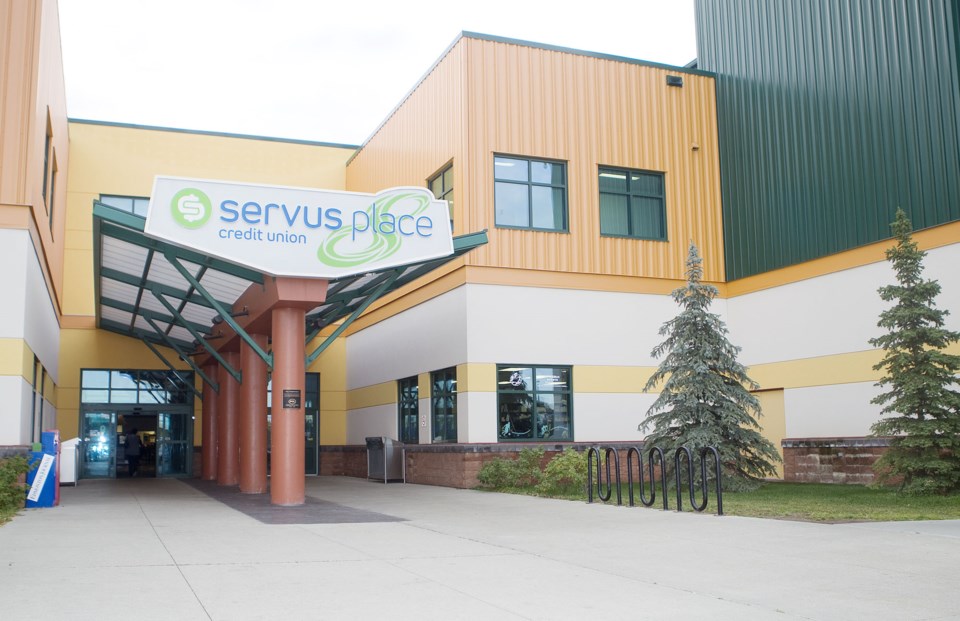Those who live outside of St. Albert might soon have to pay higher fees to use the city’s recreation services, unless they have an existing agreement to work together on services benefiting both residents.
Coun. Sheena Hughes put forward a motion to come before council June 7 that would require non-residents to pay more for programs and services within St. Albert, such as at Fountain Park and Servus Place. The motion outlines a key exception for residents in municipalities that have inter-municipal collaboration framework (ICF) in place with St. Albert, an agreement that facilitates co-operation between municipalities on sharing existing resources and pursuing the creation of new facilities.
While some of St. Albert’s neighbours — such as the City of Edmonton and the Town of Morinville — have already entered into such an agreement with St. Albert, Sturgeon County has yet to do the same.
The Albertan government made the frameworks mandatory in 2017 when they were added to the Municipal Government Act (MGA). However, the United Conservative Party (UCP) revised this requirement to make it optional for municipalities belonging to a regional board, such as the Edmonton Metropolitan Region Board (EMRB) — an entity both Sturgeon County and St. Albert are a part of.
In an interview, Hughes said her motion is about ensuring fairness for St. Albert taxpayers, who shoulder the cost of operating and maintaining St. Albert's facilities.
“Right now, we are subsidizing their residents’ use of our facilities,” Hughes said of other municipalities whose residents use St. Albert recreation facilities.
Hughes noted the residents can also take up the limited spots in St. Albert for activities such as swimming, leaving St. Albert residents to pay extra for an activity they don’t have access to.
With the city currently trying to mitigate projected future tax increases of around seven per cent for the next two years, Hughes said St. Albert needs to come up with ways to better allocate resources.
“We need to be looking at where we can find savings,” Hughes said. “Charging non-residents to use our facilities … does not impact our service levels at all.”
According to Hughes, Sturgeon County has been in talks with St. Albert about a recreation ICF for the past five years that haven’t culminated in an agreement due to disagreements on recreation costs and funding.
“We can’t just keep having these discussions for decades, and during the entire process have our residents continue to subsidize facilities for people outside of our area,” Hughes said.
Sturgeon County Mayor Alanna Hnatiw was unavailable for an interview before The Gazette's press deadline. In a comment provided May 30, Hnatiw said the motion comes "as a complete surprise."
"Sturgeon County residents are consistently one of the lowest external users of St. Albert recreation facilities and programming, which the city has confirmed to our organization in the past," Hnatiw said. "It is unfortunate that this tariff is now being considered, particularly because negotiations have not yet concluded."
Hnatiw said Sturgeon County has prioritized mandatory ICFs with towns inside its borders. She refrained from commenting on the motion further, calling it a "hypothetical situation" before it is passed by St. Albert city council.
"We will revisit our position and the impact to county residents after city council addresses the proposed motion," Hnatiw said.
If Hughes’s motion is passed, St. Albert administration will be directed to bring back a report to council before the end of June giving more detail about the fee structure, what programs and services the fees would be applied to, and how the increase would be implemented. The higher fees for non-residents would come into effect Sept. 1.
While Hughes said she is striving to level the playing field for St. Albert taxpayers, she emphasized that she has no issue with people who live outside of St. Albert using city facilities. Hughes said St. Albert will be reaching out to municipalities, including Parkland County and Beaumont, to pursue other ICFs.
“We’re open to forming those agreements,” Hughes said.




